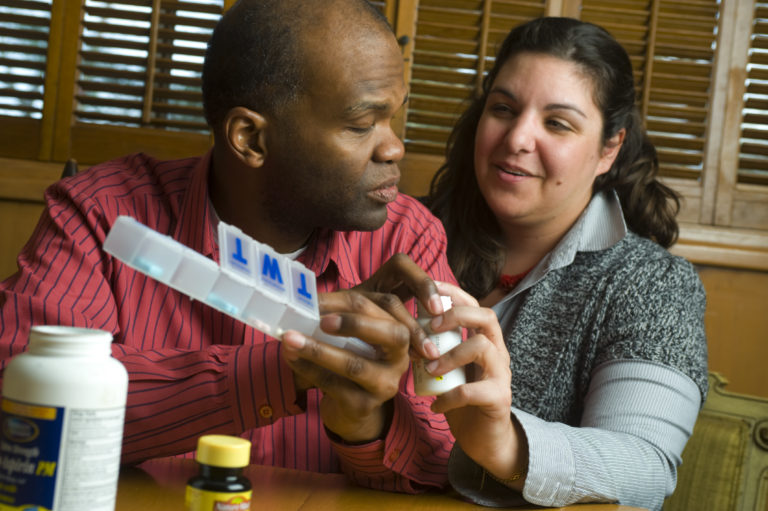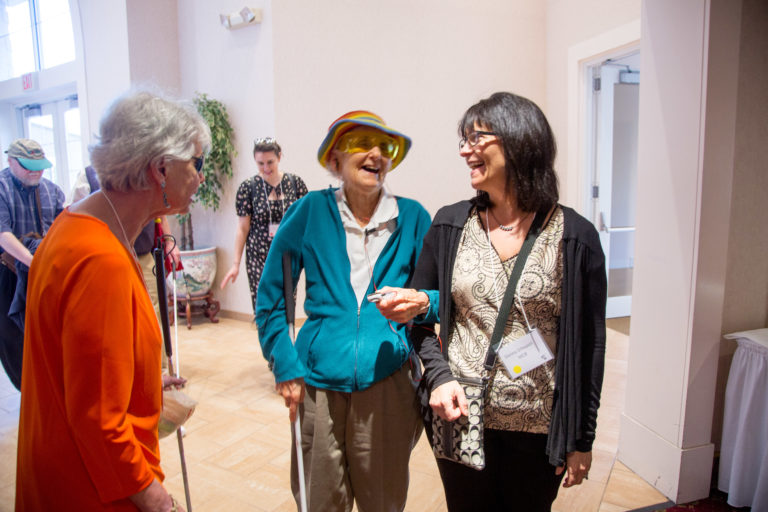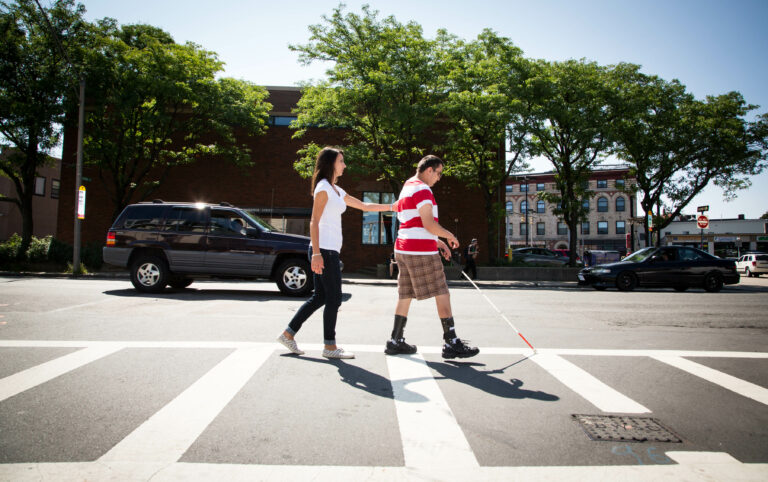Volunteer Help
Volunteers provide confidential, reliable support that helps individuals who are blind or visually impaired lead the complete, rich, joyful lives they want to live. Volunteers are matched one-to-one with clients and assist with activities such as shopping, reading, clerical work, or enjoying a walk in the park. Volunteers may also be matched as sighted guides for fitness or community activities, thereby opening new doors and opportunities.
Each volunteer is thoroughly interviewed, screened, undergoes a thorough background check, and is trained by MABVI’s experienced staff. Examples of volunteer activities include:
- Reading mail, magazines, books, and paperwork
- Clerical tasks such as writing letters, emails, and filling out forms on paper or online
- Helping with grocery shopping or errands (volunteers use their own vehicles)
- Serving as sighted guides for running, walking, the gym, or other fitness activities
- In Central Mass only, provide transportation to doctor’s appointments
Volunteerism has been a tradition since MABVI’s earliest days. Our initial Advisory Boards included such illustrious volunteers as Helen Keller, Julia Ward Howe (abolitionist and suffragist), and Edward Everett Hale (author and orator).
Our formal volunteer program started in 1959 and has grown to more than 300 volunteers across Massachusetts.
These services are available at NO COST to consumers, thanks to the generosity of the Gibney Family Foundation, our corporate and foundation supporters, and donations from individuals.
Reach us toll-free at (888) 613-2777 or email us at mabvi@mabcommunity.org
Services we provide
-
Rehabilitation
MABVI’s in-home vision rehabilitation service is provided by licensed occupational therapists. This service focuses on improving household safety, healthcare management, and adaptive strategies for doing the things you want to do in life.

-
Adjustment Counseling
Your life changes when your vision changes. It’s normal for this to feel upsetting and difficult, but you don’t have to go through it alone. Our Adjustment Counseling program can help.

-
Orientation and Mobility
Training for caregivers and individuals on safe, effective travel in the community and at home.

